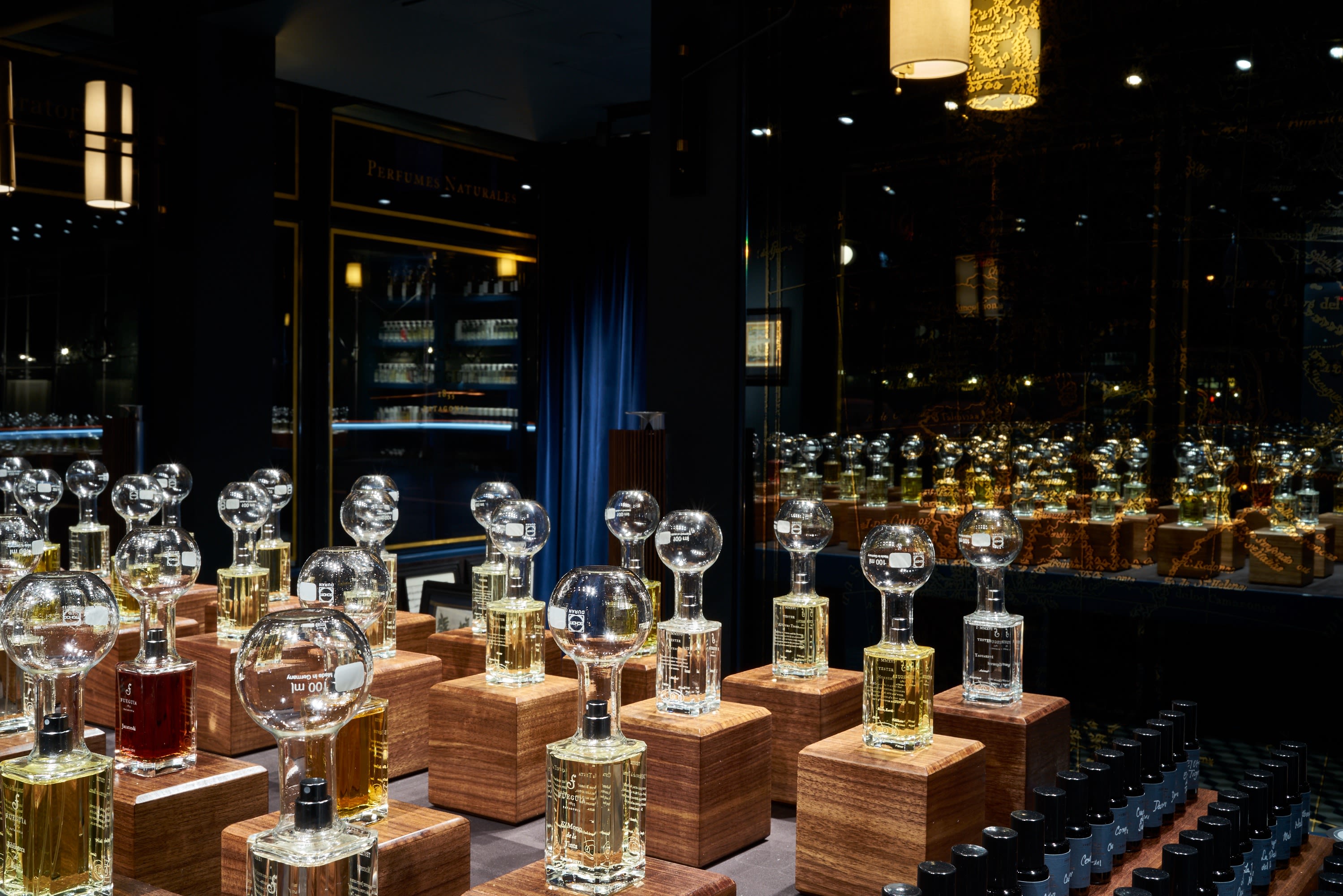When New York doesn’t smell like garbage or marijuana, it smells like three to five objectively delicious fragrances that everyone seems to have made their signature. You know the ones…Santal 33, Glossier You, Byredo Bal d’Afrique. But is a signature scent even a signature if everyone’s wearing it? I want to leave a ghost standing in the elevator; I want the friend borrowing my sweater to slip it on and feel like I’m giving them a hug. And Fueguia 1833, a niche fragrance house based between Buenos Aires and Milan, is kind of in the business of signature scents.
The line currently has over 100 fragrances, so the odds are high that you’ll find something nobody else you know wears. “We have more than 3,000 ingredients [at our disposal],” says founder and scent formulator Julian Bedel. These ingredients come from several unusual sources:
1. Specific roses that are ordered “under specific conditions,” explains Bedel, who likens it to giving instructions for a recipe.
2. If the ingredient is complicated to process, they outsource that to a specialized factory. “Iris, for example, we get from a factory that belongs to the king of Morocco.” As one does.
3. South American ingredients are grown on Fuegia’s 50 acre farm in Uruguay. Since it’s their own machinery, they can experiment with distilling untraditional parts of plants, and even co-distilling two things at once. “The molecules in a co-distillation are new and not present in the ingredients isolated, so you get a crazy scent that doesn’t exist in nature.”
4. And finally, there are the ingredients that, er, don’t actually smell like anything. “Some molecules in the natural world don’t have a scent but still have an impact on us,” says Bedel, so they’re important to include too. Sure!
A double safeguard against mundanity is that all of Fueguia’s fragrances are meant to interact with your skin chemistry. Bedel formulates with “transparency” in mind, meaning none of the scents are supposed to totally block your natural eau. “I want the ingredients to connect with the fatty acids on your skin and create something unique.” Even if two people buy the same scent, it should smell differently on each of them.
Oh, and one other thing: Every fragrance is made in a batch of 400 numbered bottles. Because it’s not always possible to get every raw material sustainably, sometimes, that’s it.
To find my perfect match, Bedel insisted on visiting Fueguia’s Soho store. Navigating the range is insanely daunting, and basically impossible online. “You have to listen to an artist in order to know if you like their songs,” he mused from inside his car in Italy. “I can tell you a lot about Pink Floyd, but unless you hit play and listen to The Wall, you don’t know if you like it or not, you know?” Everything in the store is long: the menus itemizing each bottle and the table where they’re all organized have to be, to fit all 100+. The most expensive scent is a rosy oud that costs nearly a grand—thank god it wasn’t my thing. One perfume I sniffed smelled exactly like dulce de leche tastes. One smelled drafty and incense-y, like a church. One smelled… Spicy? I could feel the peppercorn at the back of my throat. Each was totally different from its neighbor and from anything I’d ever found in a department store. I kept lifting bubbles until the faint throbbings of a scent overload headache told me to stop. Then, finally, I found La Joven Noche.
Technically, all of the notes in La Joven Noche are sandalwood. But the fact that it doesn’t smell, well, one note is a testament to Fueguia’s interesting sourcing and distilling practices detailed above. The top note is mysore sandalwood, from India. The heart note is New Caledonian sandalwood, which is from a small island in the South Pacific. And the base note is Australian sandalwood. Each contains different balances of natural volatile compounds; when you blend them together, you get something totally unisex and sexy, that smells sweet and woody and warm and feels like walking on wet leaves covered in a cashmere blanket. In other words, perfect.
I started getting compliments on La Joven Noche as soon as I started wearing it. My boyfriend loved it. My friends loved it. People I bumped into in stores loved it. And yet, no one could quite pinpoint what it was. “It’s from this small brand Fueguia,” I’d explain, knowing full well how unhelpful that is. My bottle is labeled 53 out of 400. To bottle owners 1 through 52 and 54 through 400: let’s just never meet.
—Ali Oshinsky
Photo via Fueguia 1833

